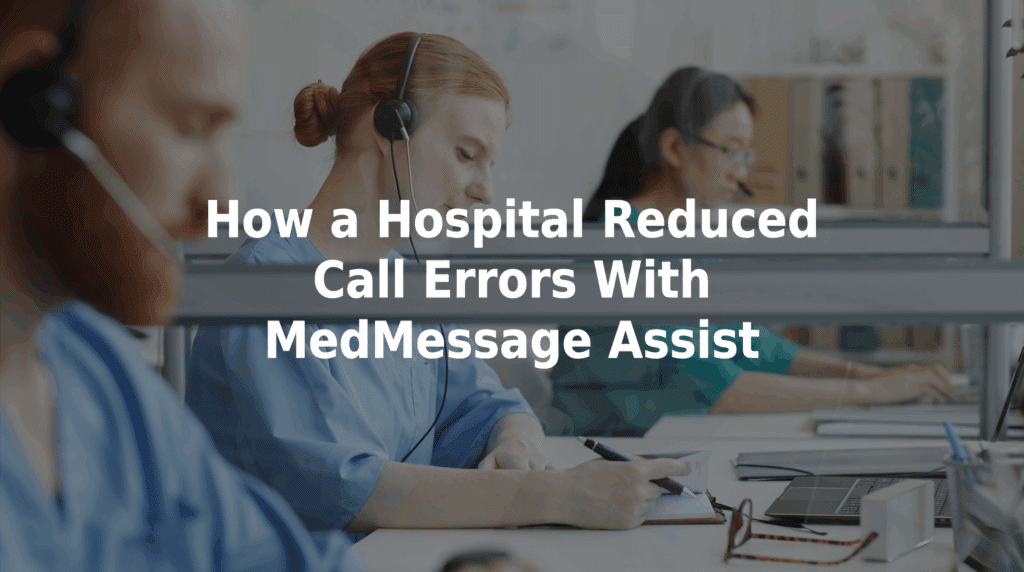How a Hospital Reduced Call Errors With MedMessage Assist®
Hospitals face constant pressure to handle high volumes of patient communication quickly, accurately, and securely. When message intake errors occur — especially by nonclinical staff — they can result in care delays, miscommunication, and preventable patient death. Below, we explore how a hospital reduced call errors with MedMessage Assist, our AI-powered tool that helps nonclinical operators achieve over 99% accuracy on all patient intake.
The Challenge: Manual Intake Meets Modern Demands
Like many hospitals, this facility relied on nonclinical operators to take patient calls and document messages for clinical review. However, their manual intake process posed several problems:
- Messages were often incomplete or inconsistent.
- Operators lacked real-time guidance for follow-up questions.
- Escalation protocols were unclear, leading to delayed patient responses.
- Clinical staff had to spend extra time clarifying symptom details to establish severity.
The Solution: Standardized Intake Using AI
Here’s how our MedMessage Assist solution benefited this hospital.
- AI-Powered Prompts: Operators received real-time guidance based on the reported symptoms they were typing, allowing them to ask pertinent follow-up questions and flag urgent cases.
- Structured Message Templates: Intake became standardized, ensuring all necessary information was captured and routed correctly.
- Escalation Triggers: The system made it easier for responding triage nurses to identify urgent messages and respond appropriately.
- Operator Confidence: New and existing staff felt more supported and less overwhelmed, leading to far fewer errors during peak call times.
The Results: Streamlined, Scalable, and Satisfying
Within 60 days of implementation, the hospital saw measurable improvements, including:
- Over 99% accuracy on all message intake.
- A significant drop in delayed escalations for urgent cases.
- Improved satisfaction among nurses receiving clearer, more actionable messages.
- Faster onboarding for new operators, reducing training time by 50%.
These results not only improved patient care — they also lightened the administrative load on clinical teams and improved call center morale.
Bonus Benefit: Patient Engagement Through Chatbots
Following the success of MedMessage Assist, the hospital began piloting MedMessage Automate — a chat-based intake option that allows patients to submit symptoms and requests digitally. This self-service model:
- Extends intake availability beyond regular hours.
- Reduces inbound call volume.
- Maintains message quality using the same AI engine.
Together, these tools allow for high-quality care coordination between nonclinical operators and triage staff.
Your Hospital Can Do the Same
MedMessage Assist proves that reducing call errors doesn’t require more staff — just smarter systems. If you’d like to see how it can benefit your team, let’s schedule some time for a demo!


